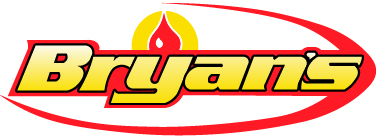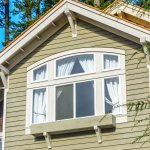As homeowners, we do everything we can to conserve the energy we use in our homes – not just to have a smaller impact on the environment, but to save money on home utility costs as well.
But in the age of the internet and changing technologies, there’s a lot of misinformation out there about the most effective ways to save energy in your home. These are some of the most common home energy myths, and what you should do instead.
1) Cranking the Thermostat Will Heat or Cool Your Home Faster
On a hot summer day or frigid winter night, we’re often tempted to really crank the air conditioner or furnace so our homes reach a more comfortable temperature a lot faster. But setting your thermostat higher or lower won’t actually make a huge difference in your home. Air conditioners and furnaces work at the same speed no matter what temperature you set them at, so choose the temperature you’re comfortable with and avoid wasting energy.
2) Energy Efficient Heating and Cooling Systems Will Automatically Reduce Your Energy Bills
Purchasing an energy efficient air conditioner or furnace is always good practice, and they will absolutely make a difference to your energy bills. But there are a couple of other things you have to consider if you really want to see a difference: size and installation. If your unit is designed for a space much larger than your home, you won’t see a drastic change in your energy savings. And poor duct systems and improper installation can actually make your HVAC less efficient.
3) Closing Vents Lower Heating and Cooling Costs
Typically, the way air conditioners and heating systems work is through a balanced duct system. Closing the vents can throw your unit off balance, and can cause pressure to build up in your ductwork. This can lead to leaking and can even reduce the amount of air that circulates in your home. Keep your system balanced and consider turning your thermostat up or down a degree or two instead.
4) Appliances Don’t Use Energy If They’re Turned Off
Many of us assume that if we turn off appliances or electronic devices, they must no longer be using any energy. But keeping these items plugged in causes them to continue to use power. This power usage is known as phantom load or standby power. If you really want to make sure your appliances and electronics aren’t using energy when you’re not using them, make sure to unplug them.
5) Heating and Cooling Systems Work Harder To Reheat or Re-Cool
At night or if your home is unoccupied while you’re at work or on vacation, it’s a good idea to adjust your thermostat to a lower setting to conserve energy. But many homeowners don’t do this, because they believe that it takes more energy to reheat or re-cool the house. Your heating and cooling system works at a set level and turns itself off when it reaches that level, so it doesn’t use more energy.
For all of your home comfort needs, including air conditioner and furnace installation, contact Bryan’s Fuel. We service Orangeville, Shelburne, Caledon, Collingwood, Owen Sound and the surrounding areas.




